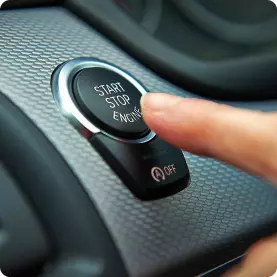Michigan OWI Laws: 2025 DUI Charges Guide

Getting Started
If you’ve been arrested for operating while intoxicated (OWI) in Michigan, you’re facing both administrative and criminal consequences. This guide outlines Michigan’s OWI laws, penalties, and the steps to restore your driving privileges. Remember that while this document provides general guidance about Michigan’s OWI processes, it is not legal advice. For case-specific help, consult a qualified attorney familiar with Michigan DUI law.
Important Note: While this page provides detailed information about Michigan DUI laws, DUI.org does not offer legal advice. Laws can change, so consult a qualified OWI attorney for personalized guidance based on your specific situation.
Definitions to Know
OWI (Operating While Intoxicated)
Michigan’s legal term for driving under the influence of alcohol or drugs.
SR-22
A certificate of financial responsibility that proves you have the minimum required auto insurance coverage, which may be required after an OWI conviction.
IID (Ignition Interlock Device)
A breathalyzer installed in your vehicle that prevents it from starting if it detects alcohol.
Michigan Secretary of State (SOS)
The government agency that handles driver’s license issues, including suspensions, restrictions, and reinstatements following OWI convictions. The SOS processes administrative license revocations, restricted license applications, IID oversight, and monitors compliance for those with OWI convictions.
Steps to Take After OWI Arrest in Michigan
- Hire an Attorney
Legal counsel can help navigate both the administrative hearings with the Secretary of State and criminal proceedings in court.
- License Suspension
Be prepared for your license to be automatically suspended or restricted based on the severity of the offense.
- Request an Administrative Hearing
If contesting a suspension, you must request a hearing with the Secretary of State within 14 days of your arrest.
- Apply for a Restricted License
If eligible, you may apply for limited driving privileges, which typically requires installing an IID under Michigan DUI laws.
- Install an Interlock Device
Required for certain offenses – mandatory for high-BAC convictions or repeat offenses.
Explore IIDs - File an SR-22
If required, you’ll need to provide proof of insurance coverage for license reinstatement.
- Complete Substance Abuse Evaluation
You’ll need to attend an evaluation and complete recommended treatment programs.
- Pay DUI Fines and Fees
OWI convictions come with substantial court fines ranging from $100-$5,000 plus other fees for license reinstatement and state charges.
- Complete OWI Education Program
Mandatory substance abuse education courses are typically required for all OWI offenders in Michigan.
- Attend Court Proceedings
Your case will progress through criminal court separately from administrative license actions.
- Probation
Terms may include regular check-ins, alcohol testing, and abstaining from alcohol or drugs.
- Avoid Further Violations
Whether on probation, using a restricted license, or after reinstatement, any new DUI in Michigan or breaking license rules can lead to jail time and extended suspensions.
OWI Laws in Michigan
What Are the Legal Driving Alcohol Limits in Michigan?
In Michigan, it’s illegal to drive while under the influence of alcohol, drugs, or a combination of both. Michigan DUI laws establish clear blood alcohol concentration (BAC) limits based on age and license type. Law enforcement typically uses breathalyzers to check your Breath Alcohol Concentration (BrAC) during traffic stops.
| Driver Category | Legal BAC Limit |
| Drivers 21 and older | 0.08% or higher |
| Commercial Drivers | 0.04% or higher |
| Drivers under 21 | Any BAC (Zero Tolerance) |
| Enhanced OWI (“High BAC”) | 0.17% or higher |
Felony vs Misdemeanor OWI Charges
In Michigan, whether an OWI is charged as a misdemeanor or a felony depends on several factors, primarily the number of prior offenses and whether the incident caused injury or death.
Misdemeanor OWI
First offense with BAC under 0.17%
Second offense within 7 years
First offense with BAC of 0.17% or higher (High BAC)
Felony OWI
Third offense within lifetime (regardless of BAC level)
Any OWI causing serious injury (called Operating While Intoxicated Causing Serious Injury)
Any OWI causing death (called Operating While Intoxicated Causing Death)
0.17% or higher
Felony DUI/OWI convictions carry substantially higher DUI penalties in Michigan, including longer jail/prison sentences, higher fines, and extended license revocation periods under Michigan DUI laws.
What Are Drunk Driving Diversion Programs in Michigan?
Michigan offers limited diversion options for first-time OWI offenders through what’s known as the Michigan DWI/Sobriety Court program in some jurisdictions. These specialty courts focus on treatment rather than punishment for eligible first-time offenders. Participation typically involves:
- Intensive supervision
- Mandatory substance abuse treatment
- Regular court appearances
- Frequent random alcohol/drug testing
- Counseling sessions
Successful completion may result in reduced charges or penalties, but eligibility is determined by the court on a case-by-case basis and is not available in all jurisdictions.
Refusing a Chemical Test Under Michigan OWI Law
Michigan, like all states, has an “implied consent” law. By driving on Michigan roads, you’ve implicitly agreed to chemical testing if arrested for suspected OWI. Michigan’s implied consent law means that by driving, you agree to submit to chemical testing if suspected of DUI. Refusing a chemical test (breath, blood, or urine) has significant consequences separate from any OWI penalties.
Refusal Incident
First Refusal
Second or Subsequent Refusal (within 7 years)
Penalty
1-year driver’s license suspension and 6 points on driving record
2-year driver’s license suspension and 6 points on driving record
If you refuse a test, police can still obtain a warrant for a blood draw, and the test results can be used against you even if you initially refused.
OWI Penalties & Consequences
Penalties for OWI Offenses in Michigan
Penalties for DUI/OWIs in Michigan become progressively severe with each conviction and vary based on BAC level.
First Offense (BAC < 0.17%)
Jail Time: Up to 93 days
Fines: $100-$500
License Action: 30 days suspension + 150 days restricted
Additional Requirements: Community service (up to 360 hours), substance abuse treatment
First Offense (High BAC ≥ 0.17%)
Jail Time: Up to 180 days
Fines: $200-$700
License Action: 45 days suspension + 320 days restricted with IID
Additional Requirements: Community service, mandatory treatment
Second Offense (within 7 years)
Jail Time: 5 days to 1 year
Fines: $200-$1,000
License Action: 1-year minimum revocation
Additional Requirements: 30-90 days community service, mandatory treatment, possible vehicle immobilization
Third Offense (lifetime)
Jail Time: 30 days-5 years
Fines: $500-$5,000
License Action: 5-year minimum revocation
Additional Requirements: 60-180 days community service, mandatory treatment, possible vehicle immobilization or forfeiture
Aggravating Factors That Increase Michigan OWI Penalties
Under Michigan DUI laws, these aggravating factors lead to elevated criminal charges, harsher DUI fines, longer jail or prison time, extended license suspensions, and additional requirements:
- High BAC (0.17% or above): Results in enhanced penalties even for first-time offenders
- Child in Vehicle: Additional charges of child endangerment, which adds jail time and fines
- Causing Injury: Felony charge with up to 5 years in prison
- Causing Death: Felony charge with up to 15 years in prison
- Driving with a Suspended License: Increases penalties substantially
- Open Container in Vehicle: Additional misdemeanor charge
- Refusing a Chemical Test: Results in automatic license suspension independent of OWI penalties
- Prior Convictions: Each prior conviction significantly increases penalties
Driving Without a Valid License
Driving with a suspended license after an OWI conviction in Michigan is a serious offense that carries severe consequences. If caught driving with a suspended license due to an OWI, you face:
- Additional criminal charges (misdemeanor)
- Mandatory jail time (minimum 3 days to 1 year)
- Additional fines ($500-$1,000)
- Extension of your original suspension or revocation period
- Vehicle immobilization or forfeiture
- Ineligibility for restricted license considerations
- Difficulty in future license reinstatement proceedings
These penalties compound with each violation, making future restoration of driving privileges increasingly difficult. The Secretary of State and courts view driving while suspended very seriously, and it demonstrates a disregard for Michigan law that can severely impact your reinstatement efforts.
License Suspension
Who Determines if You Can Continue Driving After an OWI
In Michigan, both the Secretary of State (SOS) and the courts play roles in determining driving privileges after a DUI/OWI. The process involves two parallel tracks:
Administrative License Suspension (Secretary of State)
- Occurs automatically following arrest when you fail or refuse a chemical test
- Happens before DUI conviction in Michigan and is independent of court proceedings
- You have 14 days to request an administrative hearing to contest the suspension
Criminal License Penalties (Courts)
- Imposed upon conviction for OWI
- Severity depends on BAC level and prior offenses
- Court notifies the Secretary of State, which then implements the suspension or restriction
The Secretary of State has primary authority over license status and reinstatement requirements, including determining eligibility for restricted licenses and imposing requirements such as IID installation.
How Long Will Your License Be Suspended?
Getting your license suspended in Michigan means you are no longer allowed to drive a vehicle unless you obtain a temporary or restricted license during your suspension period. Here’s how long your regular license may be suspended for an OWI in Michigan:
| Offense | License Action | Duration |
| First OWI (BAC under 0.17%) | Suspension | 30 days full suspension, followed by 150 days restricted driving |
| First OWI (High BAC – 0.17%+) | Suspension | 45 days full suspension, followed by 320 days with restricted license and mandatory IID |
| Second OWI (within 7 years) | Revocation | Minimum 1 year (5-year minimum if prior revocation within 7 years) |
| Third OWI (lifetime) | Revocation | Minimum 5 years |
Steps to Reinstate Your License
If your Michigan license was suspended or revoked for a DUI/OWI, you must complete several steps to regain your driving privileges. Here’s what to expect:
- Serve your full suspension or revocation period
- Pay reinstatement fees ($125 standard fee, plus additional fees for driver responsibility program)
- If required, provide proof of installation of an ignition interlock device
- Complete required substance abuse education or treatment programs
- For multiple offenses, attend and win a Secretary of State driver license appeal hearing to demonstrate sobriety
- For revocations, provide evidence of ongoing sobriety (typically 6-12 months with documentation)
Restoring Your Driving Privileges
After a DUI in Michigan, restoring your full driving privileges requires navigating a complex system of requirements. The path to reinstatement depends on the severity of your offense and prior driving record.
Eligibility for an Employment/Program-Restricted Driver’s License
Michigan offers restricted licenses that allow limited driving for specific purposes while serving an OWI suspension. Eligibility varies by offense:
First Offense (standard OWI):
- Eligible after 30 days of hard suspension
- May drive to/from work, school, treatment programs, probation appointments, and court-ordered community service
- No IID required unless ordered by court
First Offense (High BAC):
- Eligible after 45 days of hard suspension
- Must install and maintain an IID
- Same destination restrictions as standard first offense
Second Offense (within 7 years):
- Must wait at least 1 year of revocation
- Must request and win a hearing with the Secretary of State
- Must install and maintain an IID
- Must demonstrate 6-12 months of sobriety
Third Offense or More:
- Must wait at least 5 years from revocation date
- Must request and win a hearing with the Secretary of State
- Must demonstrate sustained sobriety (typically 12+ months)
- Must install and maintain an IID if granted restricted license
Additional information on eligibility criteria is available on the Michigan Secretary of State website.
How to Apply for Temporary Restricted Driver’s License
If your Michigan license was suspended or revoked for an OWI, you may need to apply for a temporary or restricted driver’s license, follow these steps to regain limited driving privileges while meeting state requirements.
- Install an interlock device on all vehicles you own or operate (if required)
- Gather documentation showing need (employment verification, school enrollment, treatment program verification)
- For first offenses: Submit application to Secretary of State office after serving hard suspension period
- For multiple offenses: File for a driver’s license appeal hearing with the Secretary of State
- Provide evidence of sobriety and completed substance abuse evaluation
- Pay applicable fees (typically $125 reinstatement fee plus administrative hearing fees if applicable)
- Maintain proof of ongoing treatment compliance and sobriety
Michigan Ignition Interlock Device (IID) Requirements
Michigan has specific requirements for ignition interlock devices for OWI offenders. Interlock devices must be installed on every vehicle you own or operate and must be certified by the Michigan Secretary of State.
Key requirements include:
- The device must be obtained from a provider on the SOS approved vendor list
- Installation must be verified and documented
- Monthly maintenance/calibration appointments are required
- All test violations are reported to the Secretary of State
- Failed tests may result in extended license restrictions or revocation
- The driver is responsible for all costs associated with the IID (typically $70-100 monthly)
- For High BAC and repeat offenders, the device must be used for at least one year
- You must maintain a log of any failed tests with explanations
- Three or more start-up test failures within a monitoring period may result in license re-revocation

Selecting the right ignition interlock provider can make a world of difference.
SR-22 Insurance Requirements
In some cases, Michigan OWI offenders may need to file an SR-22 form as proof of insurance. This is typically required for:
- Drivers with multiple OWI convictions
- Drivers involved in accidents without insurance
- Drivers with certain license reinstatement requirements
The SR-22 is not an insurance policy itself, but rather a certificate filed by your insurance company with the state that proves you have the minimum required coverage. In Michigan, you should be aware that:
- SR-22 filing typically increases your insurance premiums significantly
- You must maintain continuous coverage without lapse for the required period (usually 3 years)
- If your policy lapses, your insurer notifies the state and your license is immediately re-suspended
- You must continue the SR-22 for the full mandated period, even with a perfect driving record

Let us help connect you to the right licensed insurance specialist for you.
Substance Abuse Evaluation and Treatment
All Michigan OWI convictions require completion of substance abuse evaluation and recommended treatment. The process includes:
- Initial screening conducted by a state-approved evaluation provider
- In-depth assessment of alcohol/substance use patterns
- Recommendations for education and/or treatment based on evaluation results
- Mandatory completion of recommended programs
- Documentation of completion for court and Secretary of State
- Possible ongoing testing and monitoring
- Potential requirement for support group attendance (such as AA)
Michigan maintains a directory of approved providers for assessments and classes through the Department of Health and Human Services. Treatment options range from education classes to intensive outpatient or residential treatment, depending on the severity of the substance use issue identified.

Understand what to expect and how to prepare for a substance abuse evaluation.
FAQs About OWIs in Michigan
What’s the difference between OWI, DUI, and OWVI in Michigan?
OWI (Operating While Intoxicated) is Michigan’s primary drunk driving offense. OWVI (Operating While Visibly Impaired) is a lesser charge. DUI is not an official term in Michigan law.
Can I refuse a breathalyzer test in Michigan?
You can refuse, but under implied consent law, refusal results in automatic license suspension for one year, and police can still seek a warrant for a blood test.
Will I lose my license for a first-time OWI in Michigan?
Yes, but the suspension is typically 30 days of full suspension followed by 150 days of restricted driving privileges for standard first offenses.
How long does an OWI stay on my driving record in Michigan?
An OWI remains on your Michigan driving record permanently, but is only counted for enhancement of penalties within a 7-year period for a second offense or lifetime for a third offense.
Can I get an OWI expunged from my record in Michigan?
As of 2021, first-time OWI offenders may be eligible for expungement five years after probation ends, provided they have no subsequent alcohol-related driving offenses.
Sources
- Michigan State Legislature. (2023). Michigan Vehicle Code, Act 300 of 1949, MCL 257.625. Retrieved from https://legislature.mi.gov/Laws/MCL?objectName=MCL-257-625
- Michigan State Police. (2023). Impaired Driving Law. Retrieved from https://www.michigan.gov/msp/divisions/ohsp/safety-programs/impaired-driving/impaired-driving-law
- FindLaw. (2023). Michigan DUI Laws. Retrieved from https://www.findlaw.com/state/michigan-law/michigan-dui-laws.html
- National College for DUI Defense. (2023). Michigan OWI Laws. Retrieved from https://www.ncdd.com/michigan-owi-laws
- Michigan Secretary of State. (2023). License Restoration. Retrieved from https://www.michigan.gov/sos/license-id/license-restoration
- Michigan Department of Health and Human Services. (2023). Providers of Assessments and Classes. Retrieved from https://www.michigan.gov/mdhhs/keep-mi-healthy/mentalhealth/drugcontrol/treatment/txcontent/providers-of-assessments-and-classes
Get support.
What is next? We can help you through the process. Give us a little information and we can support you through the next steps.
All fields are required.